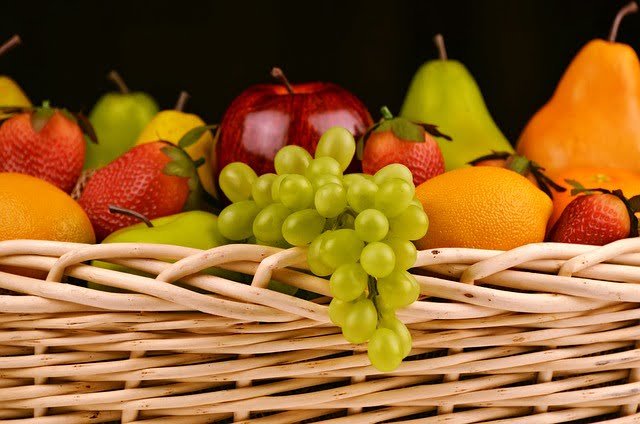The Gut-Friendly Kitchen: 18 Foods That Help Digestion
Our digestive system is like a factory that turns food into the energy and nutrients our body needs. But did you know that certain foods can help this factory work better? Foods like ginger, vegetables, kefir, and yogurt can give it a boost.
However, be careful with what you eat because sudden changes or certain foods can cause digestion issues. Some folks might experience:
- Feeling swollen or bloated
- Passing gas
- Having trouble going to the bathroom (constipation)
- Getting the runs (diarrhea)
- Feeling like you’re going to throw up (nausea)
- Actually throwing up
- Dealing with heartburn
In this article, we’ll talk about foods that make your digestive system happy.
1. Oats
Oats are pretty awesome because they’re like a buffet for the good bacteria in your tummy, and they’re budget-friendly! You can use them for all sorts of recipes, like a cozy bowl of oatmeal in the morning or even as an ingredient in your banana bread.
Now, what’s so great about oats being a “prebiotic” food? Well, prebiotics are like a fancy term for the food that keeps those friendly gut bacteria happy and your digestive system running smoothly. To make your mornings easier, try making overnight oats. You can make them sweet or savory, and they’ll fill you up and keep you satisfied.
2. Sauerkraut
Sauerkraut and other fermented foods are like a superhero squad for your gut. They have something called “probiotics,” which are like reinforcements for the good bacteria in your belly. These probiotics are super helpful when you lose some of your good gut buddies due to stress, certain medications, or other things in your environment.
Probiotics can reduce bloating, gas, and other tummy troubles. It’s essential to get different types of probiotics because there are tons of them (maybe even thousands!). Sauerkraut is like a probiotic wonderland; it can have up to 28 different types! And you don’t need a lot—just 2 tablespoons, usually. You can sneak them into sandwiches or grain bowls.
3. Chia Seeds
Tiny chia seeds are like fiber powerhouses. A mere 2 tablespoons have a whopping 11 grams of fiber, which is more than a third of what you need in a day. When you soak them in liquid, they turn into a pudding-like texture, thanks to their soluble fiber. This fiber not only makes your gut buddies happy but also helps with regular and healthy bathroom visits.(1)
4. Apples
Apples are easy on your tummy because they have a gentle fiber called pectin. Unlike other fibers that can make you feel bloated or uncomfortable, pectin is chill. It’s also a hero for your gut lining, potentially keeping out unwanted stuff and helping your body absorb nutrients. You can go for any type of apple you like best; they all offer these benefits.
5. Broccoli
Broccoli and its veggie buddies, like cabbage, cauliflower, and Brussels sprouts, are like superheroes for your digestive health. They help your gut bacteria thrive and make your gut environment diverse and rich. These veggies are also known for keeping colon inflammation low and even reducing the risk of colorectal cancer. The prebiotic fiber in them gets fermented in your intestines, creating good stuff called short-chain fatty acids that fight inflammation. Just keep in mind they might bring along a bit of gas, so introduce them to your diet slowly if you’re not used to eating them.
6. Bananas
Bananas, especially when they’re not too ripe, are fantastic for your gut. They contain something called “resistant starch,” which feeds the good bacteria in your belly and makes your gut microbiome happy. As bananas ripen, they turn into sugar, but there’s still some good starch left. Bananas are super versatile, so have fun with them—eat them for breakfast, as a snack before a workout, or even dip them in chocolate or nut butter for dessert.
7. Water
Okay, we know water isn’t exactly food, but it’s like the VIP of digestion. Staying hydrated is crucial for a healthy belly. Fluids help break down your food so your body can soak up all the nutrients it needs to keep you feeling great.
Water and fiber work together like a team to keep you regular. Fiber pulls water into your colon, making your stools softer and easier to pass. So, remember to drink up! If plain water isn’t your thing, you can jazz it up with fresh fruit, citrus, or some herbs for a tasty twist.
Learn More……….How Much Water You Drink Per Day?
8. Beans
Beans, sometimes known for their musical qualities, can make you feel a bit gassy, but that’s actually a good thing. It happens because of a fiber called oligosaccharides.
The fiber in beans is like a snack for the helpful bacteria in your gut. These little buddies are responsible for letting the good stuff into your bloodstream and keeping the bad stuff out. If you want to boost your fiber and eat a variety of plants, go for mixed bean cans with different types of beans, not just kidney beans.
9. Pineapple
Pineapple isn’t just a tasty fruit; it can also be a friend to your digestion. Inside it, there’s a special enzyme called bromelain. Bromelain is like a digestive superhero because it breaks down the proteins in the food you eat. This makes digestion smoother and less likely to leave you feeling gassy and bloated.
Bromelain can even help fight off some bad guys in your intestines, reducing things like diarrhea and other tummy issues for some people.
10. Low-Fructose Fruits
If you often feel gassy and bloated, you might want to think about how much fructose, which is a type of sugar found in fruits, you’re eating. Some fruits like apples, pears, and mangoes have a lot of fructose, and they can make you gassy.
But there are fruits like berries and citrus fruits, such as oranges and grapefruit, that have less fructose. These fruits are easier on your stomach and are less likely to give you gas. Bananas are another good choice because they have low fructose levels, are full of fiber, and contain inulin, which helps the growth of beneficial gut bacteria.
11. Lean Protein
If you have stomach issues like IBS or a sensitive stomach, it’s a good idea to stick to lean proteins and avoid foods that are high in fat, like fried foods.
Fatty foods can make your colon contract, and the fat in red meat, in particular, isn’t great for your stomach. Red meat can also encourage the growth of colon bacteria that produce substances linked to a higher risk of blocked arteries. So, choosing healthier protein options is a wise move.
12. Avocado
Avocado is like a superfood for your belly. It’s loaded with fiber and important stuff like potassium that helps your digestion work well. And here’s the bonus: it won’t make you all gassy because it’s low in fructose.
But, be a bit careful with how much avocado or nuts you eat. They’re packed with good stuff, but they’re also pretty high in fat. So, enjoy them in reasonable amounts.
13. Leafy Greens
Think of leafy greens like spinach or kale as your tummy’s best friends. They’re full of fiber and good things like folate, vitamin C, vitamin K, and vitamin A. What’s cool is that they also have a special kind of sugar that helps friendly gut bacteria grow.
If you load up on fiber and leafy greens, your stomach can become a paradise for trillions of tiny organisms living in your colon.
14. Whole Grains
When it comes to grains, like rice or bread, consider going for the whole-grain versions. Why? Because they’re awesome for your stomach! Your gut needs around 25 grams of fiber every day to work its best, and whole grains are packed with it.
Whole grains are much better than the refined stuff like white bread or pasta. They have a bunch of fiber and extra nutrients like omega-3 fatty acids. When your gut bacteria munch on fiber, they create special fatty acids that keep the cells in your colon happy. And guess what? About 70 percent of your immune cells hang out there!
Even though some diets say to skip grains for weight loss, it might not be great for the friendly gut buddies who love fiber.
15. Turmeric
Turmeric is a spice that’s really good for your body. It’s anti-inflammatory, which means it helps reduce inflammation, and it can even help fight cancer. One of the important things in turmeric is called curcumin, and it does some cool stuff for your stomach. It protects the lining of your stomach, makes your gut bacteria happy, and might even help with stomach problems like inflammatory bowel disease and colorectal cancer.
Because it has a strong taste, you should start with just a little bit of turmeric, like 1/8 of a teaspoon, and then you can use more as you get used to it. You can add it to things like tea, dairy-free drinks, or nut or seed milk.
16. Broth (Bone Broth or Vegetable Broth)
Broths are like a warm hug for your tummy. They’re easy to digest, make you feel cozy, and they’re great for your immune system. If you’ve had diarrhea, they can also help keep you hydrated. You can make broths even better by adding veggies, herbs, spices, sea veggies, special mushrooms, and adaptogens (which are like natural helpers for your body).
If you choose bone broth, it has amino acids (that’s like the building blocks of protein) that help heal and fix things in your body. It also helps your stomach make more of the juices it needs for digestion.
Learn more………How to boost digestive health? Simple Tips
17. Sweet Potatoes
Sweet potatoes are like the yummy heroes of the veggie world. They’re delicious and packed with Vitamin A, which is important for keeping your stomach healthy and your immune system strong. Sweet potatoes have a special kind of antioxidant called anthocyanins that might even help prevent colon cancer.
They’re easy on your stomach and might even tell your body to make more digestive enzymes. You can use sweet potatoes in so many dishes, from soups and stews to gluten-free treats. They’re great roasted or mashed too!
18. Coconut Oil
Coconut oil is a healthy cooking oil that’s easy for our bodies to handle. It’s anti-inflammatory, which means it helps reduce inflammation, and it contains something called lauric acid, which fights harmful bacteria in your digestive system.
You can use coconut oil for cooking or baking, or even add it to dairy-free drinks. Learn more……..What are the benefits of coconut oil?


